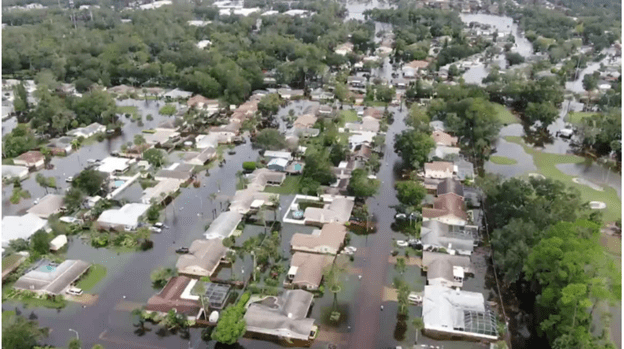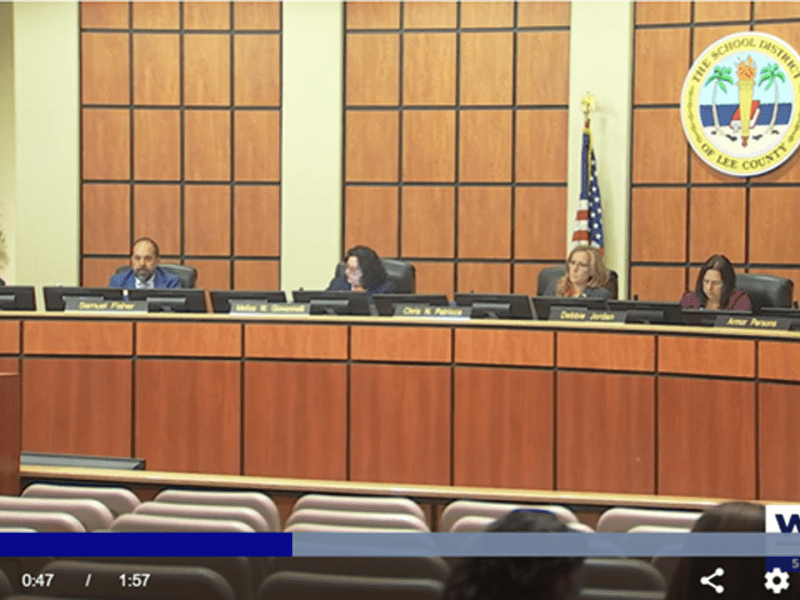Volusia elementary school tests for high lead levels in water; extent of exposure unclear
The Daytona Beach News-Journal | By Danielle Johnson | October 11, 2022
Volusia County Schools will undergo an emergency project at Sugar Mill Elementary in Port Orange after high lead levels were recently found in the school’s water.
The highest sample of lead was more than twice the Environmental Protection Agency’s limit for taking action, but it is unclear the extent to which students and faculty may have been exposed.
The notice of the high levels appeared before the school board on Sept. 27 as a request to approve emergency funding in the amount of $350,000 to replace or reline the pipes. The board unanimously approved the item on its consent agenda without discussion.
A memo dated Sept. 7 from VCS Coordinator of Design and Construction Thomas Brown notified administration of the investigation that “determined that water at some fixtures have above normal levels of lead that exceed EPA permissible limits.”
Information provided by the district’s communications department on Friday stated that the highest lead sample collected was 35.6 parts per billion, though the majority of the elevated samples were in the mid-20 parts-per-billion range.
The EPA’s “lead action level” is 15 parts per billion. If more than 10% of tap water samples exceed that amount, action must be taken, which can include replacing portions of lead pipes and plumbing.
However, the agency also has set a maximum contaminant level goal for lead in drinking water at zero “because lead is a toxic metal that can be harmful to human health even at low exposure levels.”
The memo explained that the immediate fix was to temporarily shut off water to affected areas because of suspected piping issues.
Eleven classrooms within six buildings at Sugar Mill Elementary were affected, the district said.
VCS said that it is difficult to determine the extent to which students and faculty were exposed to or affected by the high lead levels, however.
“When compared to other counties or school districts that have conducted similar testing, these samples are relatively low,” the statement said.
Lead can enter water when lead pipes and plumbing materials corrode. According to the EPA, lead is harmful, especially to children, and there is no known safe level of lead in a child’s blood.
The school has more than 600 students, and the school’s website lists around 130 administrators, teachers and other staff members as Sugar Mill Elementary employees.
Pipes will not be fixed until summer
The long-term fix, which is required “in order to avoid potential health/safety issues,” according to Brown’s memo, is “immediate replacement or relining to ensure that water being distributed is within required limits when restored.”
The memo suggested an emergency be declared to expedite the process of securing a contractor.
However, the district stated on Monday that a relining project has been scheduled for the upcoming summer break after discussion with school and district administration.
“Consideration was given to doing it during the school year, but school breaks such as Christmas would not be long enough and would require several mobilizations escalating the price,” VCS stated.
Water will be supplied until the project is completed in the summer and water tests confirm adherence to EPA standards.
The district stated that every school’s water has been tested for lead and that retesting will continue on a scheduled basis every year. The maintenance and new construction departments only install certified lead-free fixtures and piping.
Volusia County Schools Lead Sampling
Reported as part of FDEP’s Voluntary Lead Testing Program for Schools
One part per million is equivalent to 1,000 parts per billion. The Environmental Protection Agency’s action level for lead in drinking water is 15 ppb, or 0.015 ppm.
Results-LeadTestingSchoolChildcareFacilitiesAccording to its website, Volusia County Schools has partnered with the Florida Department of Environmental Protection and Florida Department of Education to participate in the state’s Voluntary Lead Testing Program for schools.
Data from that program are available on the DEP website and suggest many schools have had some samples test at high levels.
Testing from Sugar Mill in April returned 13 samples over the action level. Spruce Creek High School also had 10 high samples from April. More than 20 other Volusia County schools have had one to five samples above the EPA action level during 2022.
Lead can have harmful effects
The Volusia County Property Appraiser lists Sugar Mill Elementary as originally built in 1984, though the school’s website says it has been serving Port Orange children since 1982.
In 1986, Congress amended the Safe Drinking Water Act to prohibit pipes that had more than 8% lead from being used in public water systems or in plumbing that provides water for human consumption, according to the EPA.
In 2011, the allowable amount was changed to a weighted average of 0.25% lead in plumbing products.
epa_lead_in_drinking_water“Young children, infants, and fetuses are particularly vulnerable to lead because the physical and behavioral effects of lead occur at lower exposure levels in children than in adults,” the EPA states. “A dose of lead that would have little effect on an adult can have a significant effect on a child.”
Low levels of lead in blood for children can result in behavior and learning problems, lower IQ and hyperactivity, slowed growth, hearing problems and anemia. Low exposure has also been linked to central and peripheral nervous system damage.
In adults, it can cause cardiovascular effects, decreased kidney function and reproductive problems.
Lead exposure can come from sources other than water, such as paint, air, soil and food. To reduce risk of exposure from water, individuals can run their water before drinking it, use filters and have their water tested.






